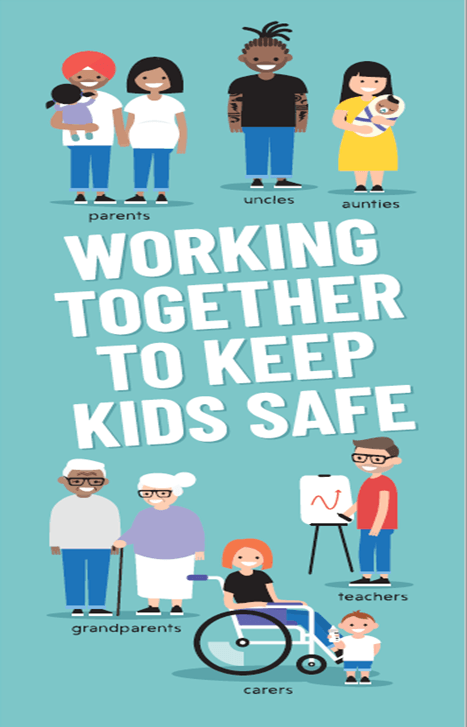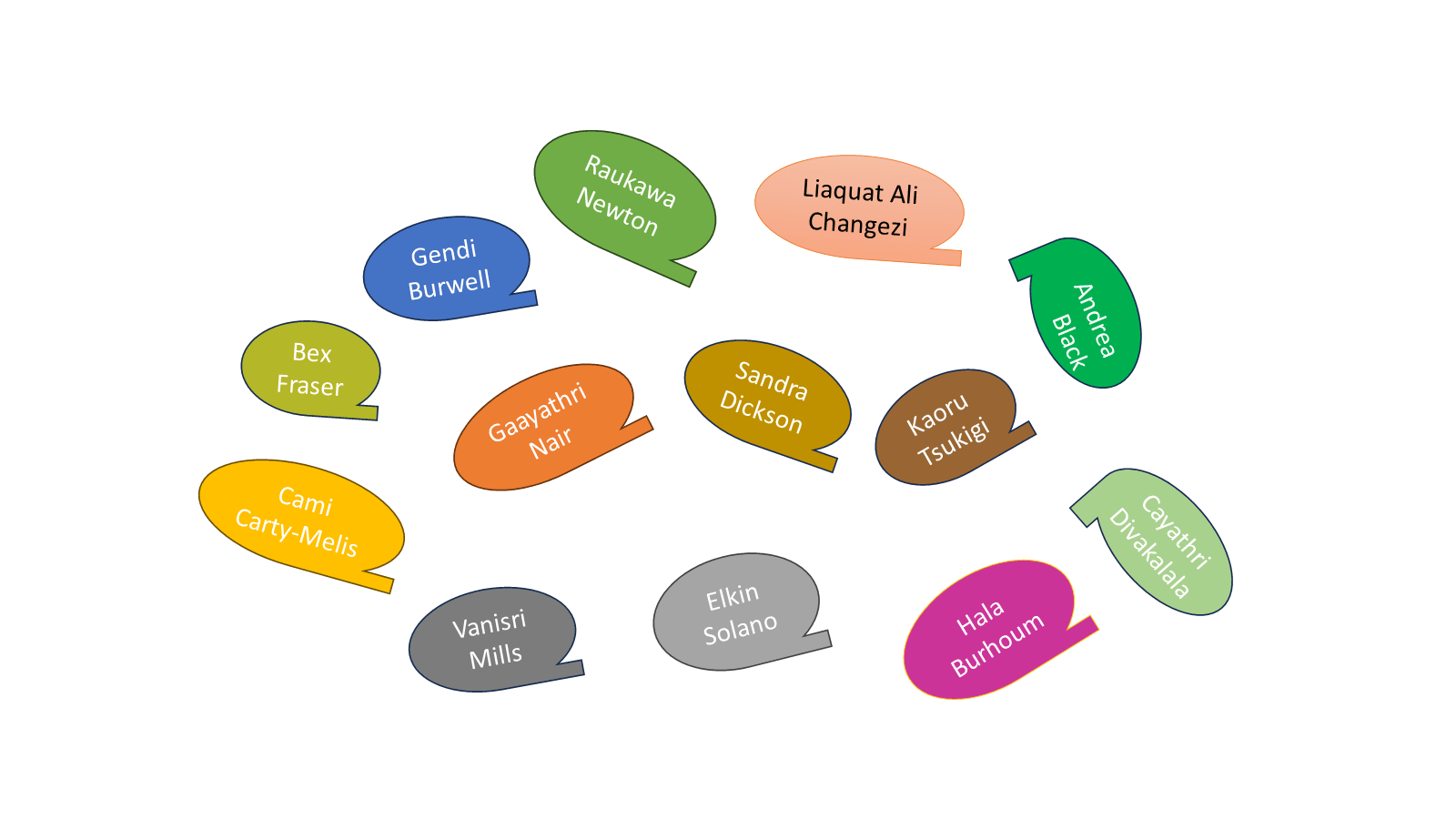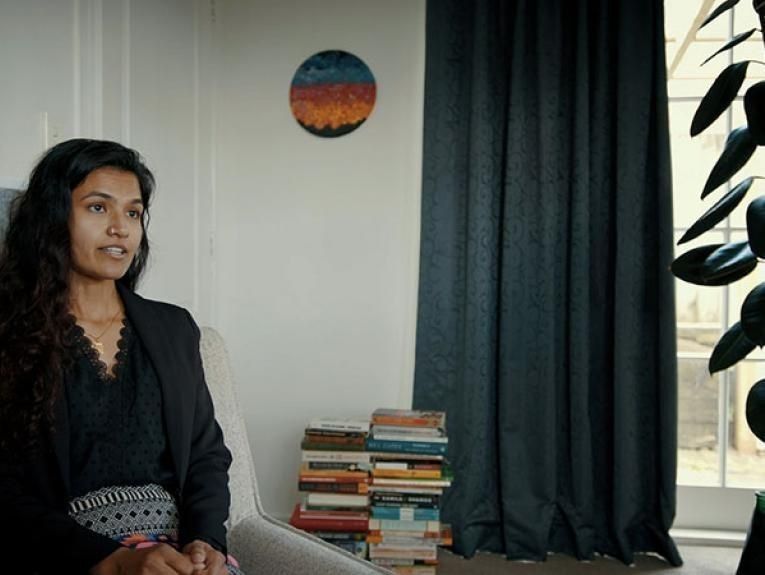"kōrerorero nui" "முக்கியமான உரையாடல்கள்" "mukkiyamāṉa uraiyāṭalkaḷ" "kahalagahan ng komunikasyon" "important conversations"
an online resource for all who want to keep ethnic rainbow children safe in Aotearoa New Zealand
Mana and Manaakitanga are in the heart of Aotearoa New Zealand society. In that, we find a diverse craft of cultures, traditions, and communities. Amidst this vibrant craft of the flora and fauna, humans and non-humans, the land and its ancestors, elders past, present and future, the safety and well-being of children are of paramount concern.
Trigger Warning:
This material contains discussions about child sexual harm and abuse, which may be distressing for some readers. Reader discretion is advised. If you need support, please consider reaching out to a trusted friend, family member, or a professional helpline.
Disclaimer
This is a generic resource. It should not be taken to constitute mental health or any other type of professional guidance as relevant to your specific situation. If you need professional support, please reach out to a registered service provider.
Most adults want to keep their children safe. The key messages from our communities focus on how important it is for our children to embrace their sex, gender, and sexuality diversity alongside their cultural identities, belongings, and immigration status. There is no one correct way of knowing this. They emphasise the need to have a series of important conversations with adults and children. They can never be a one-off thing. Hence, we suggest, talking again, and again!
Jump down to the key themes...
Most adults understand that children are one of the most vulnerable sections of our society. However, existing statistics reveal gaps and a lack of information concerning child sexual harm, particularly among children from specific backgrounds, socio-cultural affiliations, differing immigration statuses, and those with special needs - factors that render them more susceptible to harm.
This online resource addresses these gaps through a community-focused and culturally sensitive lens and offers some suggestions to normalise kōrerorero nui important conversations about child sexual harm and abuse.
Why do we call it “kōrerorero nui” “important conversations”
We believe in community-driven collaborative prevention work
Over the past year, Dr Cayathri Divakalala collaborated with Diversity Counselling New Zealand and Hohou te Rongo Kahukura on a project called “Strengthening Community Led Solutions for Child Sexual Abuse Prevention”, commissioned by Accident Compensation Corporation (ACC). This was a vital mission to identify protective factors and values that help to keep our children safe from sexual harm or abuse.
Our approach is distinctively centred on socio-culturally sensitive protective factors, illuminating a path of hope for social change driven by the voices of our communities.
This has not only facilitated but also fortified our connections with the community, establishing foundations of trust and authenticity.
Adikaar Aotearoa hosts this resource intending better outreach to our communities.

Our team comes from various backgrounds of race, ethnicity, sexuality, sex and gender identities, religion, age/generation, region, politics, hobbies, skills, and talents.

In general, several team discussions based on deep reflections and constructive feed forwards have significantly shaped this resource. Read more about the resources created by Diversity Counselling New Zealand and Hohou te Rongo Kahukura:
Preventing CSA for Takatāpui and rainbow children - Kōrero mai | Talk to me - supporting parents and caregivers to talk about gender, sexuality and safety with the children in their lives
Preventing CSA for ethnic children - https://dcnz.net/courageous-chats-for-our-children/ - a multilingual resource on being courageous and talking about things we have not talked about before.
In particular, Cami Carty-Melis and Gaayathri Nair have held many discussions with parents, aunts and uncles, grandparents, caregivers, community leaders, teachers, mentors, and community workers that have directly influenced the content of this particular online resource. Insights from these discussions have been interwoven into various aspects of this online resource.
Our communities have been aching to talk
They want to protect children. They want to learn. They want tools. They want to hear from other communities. They want to engage. They want to be the change.
They are asking for:
how to address the general discomfort and reluctance to talk about child sexual harm and abuse
ways of changing the myths around stranger danger
how to address cultural differences in discussing sex and sexual harm and abuse from different religious points of view
appropriate conversation starters
how to keep the conversation interactive, non-judgemental, empathetic, trusting, and ongoing
However, how can you speak of sex, gender, and sexuality diversity when there is no acceptance and/or denial of them? This resource addresses this fundamental challenge.
We nudge you to read, listen, reflect, act, reflect again, and share with others.
Meet the incredible members of our community who are experts in this field due to their lived experiences as well as their professional engagements:
They have generously shared their experiences, insights, concerns, and invaluable wisdom. Their collective knowledge reflects what was shared by the communities we have spoken with. We hope that they offer some insights into what our communities have been asking for, and what you are looking for and support you in your journeys of keeping ethnic rainbow children safe.
Nishhza Thiruselvam and Bailey Poching produced kōrerorero in video format, except for a couple of them that were done by Bex Fraser (Sehar Moughal) and Dr Divakalala (Gaayathri Nair).
Bailey Poching
Dharshi Ponnampalam
Nur Rafiqah Sulaiman
Nishhza Thiruselvam
Angelo Libeau
Gaayathri Nair
Sehar Moughal

Sehar is a Pakistani-born Kiwi. She has resided in Aotearoa New Zealand for the last 20 years. Sehar is a registered psychologist and a board-certified behaviour analyst (BCBA). She teaches at the University of Auckland and is pursuing a PhD in Psychology. Sehar’s passion for her work comes from her own lived experiences.
Kiran Patel provided some technical support.
This page was designed by Rachel Bauer from Luna Solutions.
Building a culturally sensitive language
In our diverse communities, we recognise the critical need for a language that respects and acknowledges our unique cultural backgrounds. In this context, building a culturally sensitive language to be able to address child sexual harm is vital in prevention work:
Promote positive messaging around protective factors and keep these conversations safe, ongoing, curious, and helpful to prevent child sexual harm or abuse.
The collective hope is to create as many safe adults around children as possible in our communities.
Information on the collaboration and partnership of another project funded at the same time can be found here:
Where to find help
If any of this information has caused disturbance and/or you are worried about a child, you might be able to find help from the following sources: